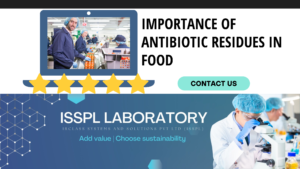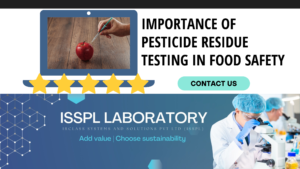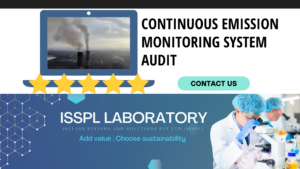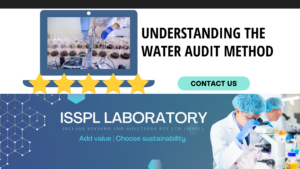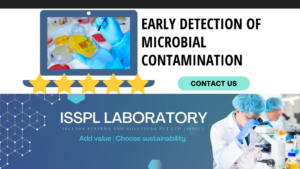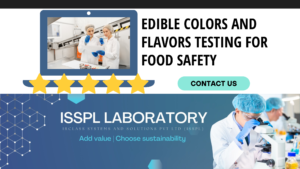An Overview by Team ISSPL - Analytical Testing Laboratory in India
ToggleBeverage quality assurance is a prime aspect of the industry. The quality control and assessment steps are dynamic and diverse. It involves extensive steps of assessing nutrients in the water base. The assessment is followed by auditing the production process.
Multiple steps help deliver a comprehensive solution. The beverage contains more than 85% of water and the remaining non-water ingredients vary at large. It can include ingredients like spices, sugar, flavoring, sweeteners, coloring agents, etc. Quality control programs and analytical testing steps in beverage processing are crucial to reviewing the chances of water contamination.
It is an integral step and can arise in any production phase. Prevent the chances of hygiene threats, biological risks, and environmental pollution with the contaminated water source. Hence, analytical testing in well-equipped labs is indispensable for all the branded manufacturers.
Testing the beverage – Do you have an overview of the dynamic quality determining factors that influence the beverages? It could be the temperature, presence of nutrients in the water, environmental impacts, and many more. All these can impact the water base adversely and promote the growth of microorganisms. (For instance, E. coli. and salmonella in the beverages) The presence of pollutants in the water base and diverse food ingredients can create havoc and adversely impact consumer health.
The testing techniques help identify the risks of consuming the products and assure quality and consistency. It covers everything from beverage additives to preservatives. All these can impact more than just the health of the consumers.
These can affect the taste and sensory quality of the beverages. As a result, the sales depend on the testing reports. It is vital to follow a stringent testing approach for water and the ingredients. The beverages, alcoholic or non-alcoholic are subject to scrutiny by recognized global regulatory agencies. The protocols and compliance requirements are dynamic.
All manufacturing units must comply with regulations and improve the acceptability and appropriateness of their product. It helps acquire consumers as well. Why? Because they can count on the information and make an informed choice.
About the non-alcoholic drinks – The non-alcoholic beverages are potable drinks. The category is dynamic and diverse. A non-alcoholic drink can be nourishing, stimulating, taste-enriching, refreshing and so much more!
These can also have thirst-quenching properties. Some non-alcoholic drinks are healthy beverages that help maintain the body’s pH balance. Nonalcoholic beverages can also provide a supplement diet to infants and patients. Some nonalcoholic beverages can also include mocktails (equivalent to cocktails) with expansive market value. Hence, the utilities and applications of non-alcoholic drinks are diverse.
They cater to the different needs of the unique consumers. More importantly, most of these beverages prevent dehydration and maintain the best water levels in the body without increasing toxicity. Thus, quality regulation is paramount. It must assure the safety and consumption appropriateness of these harmless and non-intoxicated drinks.
Following the analytical testing measures for these drinks are as vital as checking the same for intoxicated beverages.
Services for quality analysis and audits for regular beverages
The top testing facilities in the country offer a comprehensive testing and quality control solution. One can leverage the benefits of hiring testing services. Ease the worries with the top equipment and resources utilized by the analytical laboratories.
All these laboratory-based testing measures ensure the delivery of high-quality products for optimal consumption.
An integral part of quality measurement includes beverage audits. These are conducted on-site and in well-equipped laboratories. The inspection process is thorough and conducted by an expert quality control team.
They review the beverages stored, manufactured, and shipped in the production unit. It helps them check the overall management system in line with the safety protocols. Review if the regulations match the expectations of the destination market and make the most of the information. The dynamic control tests are ideal for beverages like –
- Aerated and carbonated soft drinks
- Natural and sealed mineral water
- Smoothies and health drinks
- Juices (Fruit and artificially flavored)
- Tea, coffee, etc.
- Supplements and sports drinks
- Milk-based drinks and infant formula
The systematic approach to analytical evaluation
Why is it vital to follow a systematic process for beverage testing? Hiring the best services of lab experts and on-site inspectors is vital to determining the safety and market value of the products. The market is diverse and ample, making it risky for consumers.
They are highly exposed to unseen health threats with unchecked beverages circulating in the stores. Thus, the assessment of beverages and food products at every stage of the production process is integral across the world. The regulations strengthen the steps to the next level. It is paramount to ensure compliance with the relevant specifications.
The manufacturers and distributors can make the most of the detailed report to market their offerings. Accurate testing delivers the best and correct data, essential to promote products across the world. A systematic solution for analytical testing can help manage the supply chain and bypass the financial losses related to defective products and unwanted recalls.
Analytical services you can benefit from – Testing the beverages at the best laboratories is hassle-free. The process is convenient with efficient resources. Obtain reliable information about the quality and safety of the product by focusing on the following global norms and testing techniques –
- Good Manufacturing Practice (GMP) and hygiene audits
- Production monitoring
- Process assessment
- Packaging testing
- Microbiological assessments
- Tests for contaminants such as heavy metals or pesticides
- Shelf-life tests
- Radiological and chemical tests
The need for beverage testing
The lab-based testing techniques are conducted by manufacturers, regulatory bodies, quality control organizations, and research institutions. The results ensure the best quality of the beverages and help exhibit the specific criteria for consumption safety. It is an excellent approach for market acquisition, promoting a proactive approach in the long run.
Obtain quality solutions at the best lab.
Beverage testing covers various attributes and characteristics of beverages and ensures their quality, safety, and compliance with the accepted standards. Meet the norms of quality checks and ensure product consistency to the next level. Rely on the well-equipped solutions offered by IRCLASS Systems and Solutions Pvt Ltd (ISSPL) laboratory and ease your worries.

